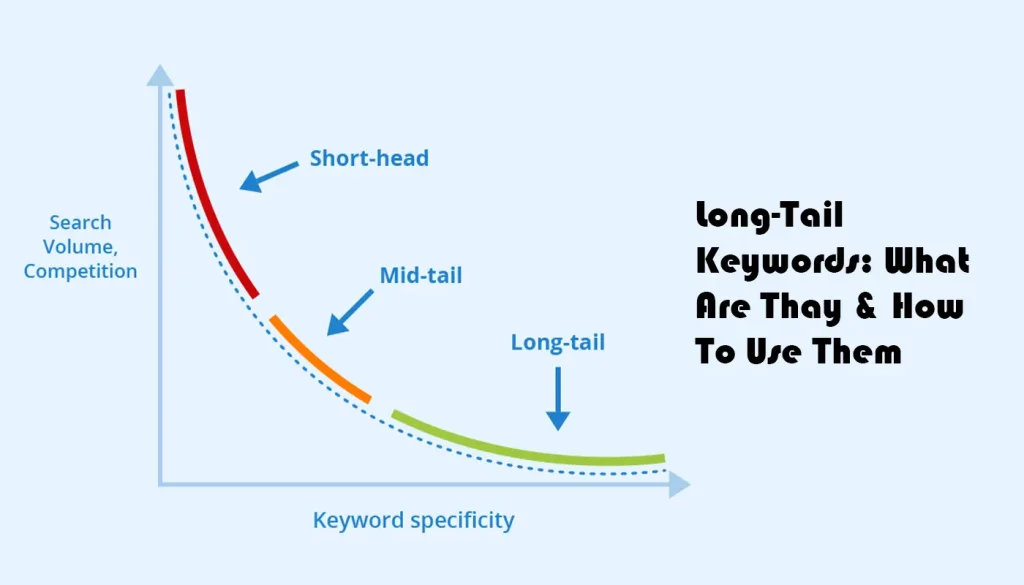Mastering local SEO is key for small businesses today. It helps you stand out in local search results. Think about it: every online search is a chance to find new customers. So, knowing how to use SEO for small businesses is crucial. Imagine what could happen if you used smart local SEO tips in marketing. It could change how you show up in local searches.
Using local SEO strategies isn’t just a guess. It’s a proven way for businesses to reach more people nearby. By focusing on local SEO, you can attract your community’s attention and get more people to visit. Let’s discover how to make your business the top choice locally. We’ll show how local SEO can help you become the go-to business in your area.
Understanding Local SEO
Diving into Local SEO is more than basic SEO knowledge. It focuses on what local customers want and how local search results work. When you appear in a Google search, it’s about standing out locally. Here, Google My Business (GMB) plays a key role, serving as your online front to locals.
A solid Local SEO strategy also includes listing in local directories. Think of each business listing as a light, leading the local audience to you. But remember, your business’s Name, Address, and Phone (NAP) must match everywhere. This is crucial for your local search rank.
Local SEO’s influence grows with active customer reviews. These reviews are vital for your local rank. Your goal is to encourage good feedback and manage your online image wisely.
- Build a strong Google My Business profile.
- Keep NAP details the same in all local directories.
- Respond to customer reviews and watch your online reputation.
Embracing these methods does more than update a list. It builds your local online identity. That identity draws in your community, turning searchers into guests and guests into customers. Remember, Local SEO is a long game. It aims for top spots in your local market’s search results.
Actionable Local SEO Tips for Small Businesses
As a local SEO expert, knowing your online presence starts with a well-made Google My Business listing is important. This is the primary strategy for your business. Having detailed info on your listing is the base of your local SEO efforts. Ensure your operating hours, contact details, and exact location are correct and current.
To boost your local SEO best practices, talking with customers through reviews is smart. It’s also good for your rankings. Answer quickly and with respect, showing you listen to their thoughts. This conversation happens to future customers, too.
- Check and refresh your business info often to stop mistakes that could mislead people or hurt your search rankings.
- Get and handle customer reviews, as they prove your service’s quality and help promote you naturally.
- Use tools like Local Falcon to see how your business shows up in different places in your area. This helps make your spot in the Map Pack better.
Also, having a mobile-friendly website is a must now. Many local searches are done on phones, so your site needs to work well on small screens. This supports your local SEO efforts.
Most importantly, these tips are not just for one time. Keep working on them to stay top in local searches. Use these ideas to improve your local SEO and meet more local customers who want to buy from you.
1. Optimise for local keywords
When targeting local markets, picking the right keywords is key. They can make your business shine online or keep it hidden. Consider these words as what locals type into search when they need what you’re selling. Yelp Suggest is a great tool that helps figure out what your nearby customers are looking for.
Use these local keywords everywhere: your website, blog, and social media pages. Doing so helps people find your business easier when they search locally. But remember, it’s crucial to add these keywords in a way that feels smooth and fits right in. Let’s dive into the methods for integrating these words effectively.
- Analyze what people mean when they use each local keyword. Then, use content that meets your potential customers’ needs.
- Put local keywords in your meta tags and descriptions. This step makes your website more visible in search results.
- Add these keywords throughout your website’s text, ensuring they improve how enjoyable your site is to read.
Focusing on local keywords helps customers find you right when they need you. This strategy boosts your online visibility and brings more people into your shop. It also increases sales, and helps build a dedicated group of fans in your area.
2. Local link building
If you’re a business owner, you probably know that local link building is critical for ranking on search engines. It helps you connect with your community. By linking your local business with others with a good reputation, you improve your online presence and draw in local customers who want to support local businesses.
To start with local link building, include these steps in your SEO plan:
- Research and identify authoritative local business directories for high-quality backlinks.
- Establish partnerships with local industry influencers to drive your website’s referral traffic.
- Participate in or sponsor community events and charities, which may result in valuable backlinks from local organization sites.
- Generate engaging local content that provides genuine value, urging neighbouring sites to link to your resources organically.
Remember, local link building focuses on quality over quantity. It’s about making trustworthy connections that boost your credibility with search engines and local customers. Ensuring your backlinks are relevant and reliable lays the groundwork for ongoing local engagement and business success.
3. Online reviews and reputation management
Learning about online reviews is key when diving into local SEO. They shape your business profile in big ways. Reviews can attract new customers and show search engines your business is trustworthy. So, companies need to care about their online reputation.
Asking customers to post their happy experiences online is a great move. If you get negative feedback, showing you care by replying thoughtfully is essential. This approach boosts your image and helps improve your local search results. How you handle all mentions of your business online matters a lot.
- Monitor review sites and social media to quickly respond to feedback, ensuring your replies match your brand’s values.
- Set up ways to collect feedback using follow-up emails and options on your site.
Your online presence goes beyond just your website. It includes everywhere your business is talked about online. Watching these mentions closely is crucial. Managing your online image well will make you more visible and credible to people and search engines.
4. Mobile optimisation
As you improve your local SEO presence, don’t overlook the importance of mobile optimisation. In today’s world, offering an outstanding user experience is key to doing well in local search performance. Most people use mobile devices to find local businesses, so your website must be mobile-friendly.
A responsive website design ensures the site works well on any device, giving users a great experience. Faster load times are another crucial part of mobile optimisation. This lets users quickly get to your content, helping to keep them on your site longer. Sites that are optimised for mobile also tend to rank better in searches because they’re easier to use.
Making your site mobile-friendly is about keeping up with trends and preparing for the future. When your mobile site meets users’ needs, you’ll see more engagement and higher conversion rates. This helps you stand out in the local market.
5. Local content marketing
Creating local content is more than marketing; it’s a deep dive into local SEO. You aim to make stories and resources that genuinely speak to local customers. This makes your company stand out as a leading voice in your area. It elevates your brand’s visibility and connection with people.
For example, writing blog posts about local events or news helps your brand feel more familiar. Posting tailored content on social media keeps you in the local conversation. Offering guides or info specific to your area shows you’re a reliable source.
The power of local content comes from its ability to connect with local customers. Great local SEO content doesn’t just share facts, it also entertains. This approach shifts your business from being seen as just a seller to an integral community member.
- Blog posts highlighting community events or local news create a buzz that brings your brand closer to home for residents.
- Engaging on social media with location-specific posts ensures you’re part of the local conversation.
- How-to guides or informational content that addresses the particularities of your locale can establish your business as a trusted expert.
6. Use structured data markup
Learn about structured data markup if you’re a local business owner looking to improve your spot in local searches. This tool helps Google understand your business better, improving your local results. Let’s explore how to use structured data markup for better visibility in Google’s local search, including the popular local pack.
- Start using structured data markup for important business info like your name, address, and phone number. This helps Google show your information right in different searches.
- Add your hours to help local customers. When someone searches for a business like yours at a certain time, your hours ensure you show up if open.
- Also, include markup for your ratings and reviews. Good feedback can help your local search ranking. Customers often look at others’ experiences before choosing.
Using structured data markup correctly helps search engines understand your business listings. This boosts your SEO efforts and ensures you’re found correctly in searches. As Google improves its algorithms, businesses using structured data markup well will stand out in local search rankings.
7. Monitor performance and adjust strategies
To stay ahead in local SEO, you must monitor your performance closely. See how different strategies boost your rankings and visibility in your area. Working with a trusted local SEO company or using top-notch tools is crucial. These tools help you see the impact of your actions online as they happen.
But what should you look closely at? Pay attention to:
- Local search engine rankings for targeted keywords
- Website traffic, especially from locals
- Conversion rates, which show how well you turn visitors into customers
Without this info, you’re guessing; with it, you can choose how to use your efforts wisely. The goal is not just to gather this data, but to take action. Look for changes in your stats and figure out why they happened. Did a search engine change its rules, a new rival appears, or did you update your site’s look? These can all influence your local presence.
If your strategies aren’t hitting the mark, be ready to change them. Even winning methods can require adjustments as the market shifts. Some pages might pull in more local visitors, showing a need for more content like this or that specific local keywords lead to more sales. Such detailed insights come from ongoing and thorough tracking of your performance.
Remember, local SEO is a marathon, not a sprint. Regular tracking and being ready to change make businesses stand out in local searches. Investing time to understand your local SEO better pays off. It helps your strategy meet today’s needs and prepare for future challenges.
Have you implemented any of these local SEO strategies?
Robust SEO strategies for small businesses are vital. Moz Local plays a key role by making local listing management easier. It helps establish a successful local SEO presence. Understanding the difference between general SEO and local-focused efforts shows how practical your current approach is.
If you’re new to local SEO or aiming to improve, assess how well you’ve used these strategies in your marketing plan. This is a chance to check if your tactics align with crucial principles. These principles attract your local customers.
- Start by optimizing local listings and directories, especially with Moz Local.
- Apply SEO strategies for small businesses consistently, using local keywords and content that resonates with your community.
- Monitor your local search performance and tweak your strategy based on data and metrics.
Building an online presence requires business owners to stay on top of SEO evolution. It involves frequent strategy reviews and staying updated with search engine changes. Which SEO strategies for small businesses have worked best for you? Let’s share experiences and discover what leads to successful local SEO. It’s about leading in your local market, not just competing.
Wrapping Up
As you think about your local SEO journey, remember using key strategies is a must. For businesses that people visit, local SEO is crucial not just to survive but to thrive and connect within your area. Remember, SEO takes time, but your dedication to it should be unwavering for future success.
Improving your local SEO needs ongoing work. Both local markets and search engines keep changing. So, your local SEO plans must also change. Stay ahead by not just using but also checking and updating your tactics. This ensures they match current trends and what potential customers want.
To wrap up, putting resources into local SEO means investing in your business’s future. Local SEO isn’t just a one-time thing; it’s a continuous effort. As you use the strategies talked about; every step helps increase your visibility and position in local search results. Being good at local SEO means not just beating competitors but being the first choice for customers wanting to connect with businesses like yours.
FAQs
Q: What are the first steps in implementing local SEO for small businesses?
A: The first steps involve ensuring your business information is accurately listed across the web, optimizing your website for local search terms, and creating a Google My Business profile. Including detailed information about your business is crucial to helping small businesses increase their visibility in local search results.
Q: How does SEO differ from local SEO for small businesses?
A: SEO focuses on improving a site’s overall visibility on the internet, while local SEO for small businesses concentrates on increasing a business’s visibility in local search engine results. It involves strategies tailored to attract local customers by making your business more relevant and visible for local searches.
Q: Why is a Google My Business profile essential for small businesses?
A: A Google My Business profile is essential because it allows small business owners to manage their online presence across Google, including search and maps. It helps customers find essential information about your business and can improve your local search rankings.
Q: Can you explain the importance of local citations in local SEO?
A: Local citations, which mention your business name, address, and phone number on other web pages, are critical for local SEO. They help improve your business’s visibility in local search by validating your business’s existence, which can attract more local customers.
Q: What role do reviews play in local search engine optimization?
A: Reviews significantly impact local search engine optimization as they prove your business’s quality and reliability. Positive reviews can improve your business’s online visibility and encourage more local customers to choose your products or services over competitors.
Q: How can small businesses use SEO tools to improve their local search presence?
A: Small businesses can use SEO tools to identify relevant local keywords, track their rankings in local search results, and analyze their competition. These tools offer insights and data that can guide the optimization of your website and business listings to attract more local customers.
Q: Should a small business owner hire an SEO expert to manage their local SEO?
A: While not mandatory, hiring an SEO expert can benefit small businesses looking to enhance their local search presence but lack the know-how or time. An SEO expert can provide specialized knowledge and strategies to help increase visibility in local search results and build relationships with local customers.
Q: What strategies can a small business employ to get listed in local searches more effectively?
A: To get listed more effectively in local searches, a small business should ensure its business information is consistent across all platforms, use local keywords throughout its website and content, build local citations, and actively manage its Google My Business profile. Engaging with local communities and events can also boost your local SEO efforts.





